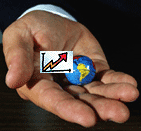 English
English français
français [page démarrage
[page démarrage  ]
]
Public Conference on Peak-Oil and Peak-GrowthOn May 19, Professors in Astronomy will talk about extraterrestrial life.Simultaneously, the students in ecology offer a terrestial conference. Life elsewhere in the universe at Uni Dufour. Life here on earth at Uni Mail. Your choice, your gain. Astronomy knows that the vast distances make it unlikely to ever travel to another habitable planet, especially now, where we probably reached the maximum production of oil. The Students Association of the Institute of Environmental Sciences, University of Geneva invites you to participate in an exchange of opinions around the issue of peak oil energy and its impact on our future lives. The event will take place in the lecture theatre MR-380 at Uni-Mail, 8:15 p.m. to 10:30 p.m., Wednesday, May 19, 2010. After three brief introductions of 15 minutes each, the call is to the public to speak. 
We will discuss whether we have reached peak-oil. The physicist Michael Dittmar will present the conventional and alternative energy prospects. Oil is the lifeblood of a thousand and one objects of daily use. With globalization, there are cell phones here as well as in the forests of Congo. Professor Elanga Botoy knows both worlds. He asks the question whether we can be happy with less luxuries, once oil scarcities will force us to scale down. Finally, all life and activity depends on modern agriculture. The agricultural engineer Valentina Hemmeler Maiga will explain how Geneva and Switzerland are dependent on food imports. The importance of local agriculture is already recognized in Article 102 of the Swiss constitution: "Art. 102 National economic supply (1) The Confederation shall ensure that the country is supplied with essential goods and services in the event of the threat of politico-military strife or war, or of severe shortages that the economy cannot by itself counteract. It shall take precautionary measures to address these matters. " (Const. Art. 102  ) )
We may wonder whether the supply of the country is still assured in the post-peak-oil era. Indeed, the red wire, or rather black, is oil, without which nothing goes. Unparalleled as energy for transport and heating, oil is also a feedstock for our computers, plastic bags and thousands of technical products that we don't think about. The asphalt for our roads, greases for engines, pharmaceuticals, chemicals and fertilizers for agriculture, everything depends on oil. "In the form of bacteria, life is probably common," says Professor Andre Maeder at the conference on astronomy: "A major uncertainty concerns the lifetime of a technological civilization. Shall we as perform as well as dinosaurs that lived for 200 million years?" (site unige  ) )
In a public lecture, a few weeks ago at the Museum of History of Science in Geneva, a young girl posed the following question: "Is it true that bacteria would continue life on earth, if our human life disappears?" That question was certainly inspired by her awareness of environmental degradation, after seeing the long list of problems affecting our planet. In the discussion on May 19, we will have the opportunity to express concerns and propose solutions to live tomorrow, with less oil. The discussion will be facilitated by Helmut Lubbers, sustainable development scientist. Details are published on www.ecoglobe.ch. Contact for all information: helmut @ ecoglobe . ch, tel. 022 3212320. 
|
|||
| |||

home | site map a-z | ecostory | glossaire éco
 ecoglobe
ecoglobe

0516a-0612

 20:25 Dr. Michael Dittmar,
20:25 Dr. Michael Dittmar,  20:40 Dr. Elangi Botoy Ituku,
20:40 Dr. Elangi Botoy Ituku,  20:55 Dipl. Ing. Agr. Valentina Hemmeler Maïga,
20:55 Dipl. Ing. Agr. Valentina Hemmeler Maïga, Moderator: [to be confirmed]
Moderator: [to be confirmed]

